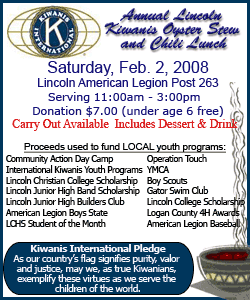|
 The attempt to hinder the flow came after Egyptian officials rejected notions of Israel relinquishing responsibility for the impoverished Gaza Strip, which has been deprived of normal trade and commerce and faced blockades. The attempt to hinder the flow came after Egyptian officials rejected notions of Israel relinquishing responsibility for the impoverished Gaza Strip, which has been deprived of normal trade and commerce and faced blockades.
The Egyptian guards were posted along the main border breach, where a crowd quickly grew into the thousands, frustrated at no longer being let in. Some threw stones at the Egyptians, but quickly stopped after being booed.
At other checkpoints, Palestinians continued to pour into Egyptian territory, carrying canisters to fill with fuel sold in the border town of Rafah.
Yousef Mohammed, 17, of Gaza, said he had waited until Friday to make the trip because he was trying to get together enough money first to shop in Egypt. "They don't want us to go in," he said, pointing at the riot police.

Egyptian Amira Ali, 39, carrying her toddler son and holding a 6-year-old son by the hand, said she wants to visit her mother-in-law in Gaza.
"Of course, I'm afraid (of being trapped in Gaza), but will try to go for a while so my mother-in-law can see the kids," she said.
Travelers returning from Egypt said they heard loudspeaker announcements there that Gazans had to return home by 7 p.m. Friday.
The border was breached Wednesday, when Palestinian militants blew down large sections of the wall. Since then, Egypt has allowed tens of thousands of Palestinians to go back and forth from the crowded territory, home to some 1.5 million people.
The opening of the border, even if temporary, provided a significant popularity boost to Gaza's Hamas rulers, who can claim they successfully broke through the internationally supported Israeli closure that has deprived the coastal strip of normal trade and commerce for nearly two years.
Both Egypt and Israel restricted the movement of people and goods in and out of Gaza after Hamas won parliament elections in 2006, and further tightened the closure after Hamas seized control of the area by force last June.
The issue turned into a verbal spat between Egypt and Israel when Israeli Deputy Defense Minister Matan Vilnai said Israel gradually wants to relinquish responsibility for Gaza, now that its border with Egypt was blown open.
[to top of second column]
 |
 It was a position echoed by other Israeli officials, who said the border breach could pave the way for increasingly disconnecting from the territory.
However, Israeli Defense Minister Ehud Barak, speaking on Thursday to The Associated Press on the sidelines of the World Economic Forum in Switzerland, said he didn't want to "go too far in my interpretation of this."
Egypt angrily rejected the Israeli ideas and said it would not change border arrangements.
"The border will go back as normal," said Egyptian Foreign Ministry spokesman Hossam Zaki. "The current situation is only an exception and for temporary reasons."
Warning that militants were among the Palestinians who entered Egypt, the Israeli military raised its level of alert Thursday, fearing an attack on Israel, and closed the highway along the Israel-Egypt border.
Overnight, Israeli air strikes killed four Hamas militants around Rafah, Palestinian and Israeli officials said Friday.

Two Hamas militiamen were killed as they drove near the shattered border fence with Egypt and two more died while driving in Rafah town, Palestinian security officials said.
The Israeli military described both strikes as being against "terrorists".
Also late Thursday, Palestinians carried out two attacks.
In east Jerusalem, gunmen shot and killed an Israeli police officer at a roadblock, and in a West Bank Jewish settlement, two infiltrators stabbed three Israeli students.
The attackers, identified by police as Hamas members, were killed by instructors at the settlement's theological seminary.
[Associated
Press; By OMAR SINAN]
AP reporters Sarah El Deeb, Ibrahim Barzak in Gaza City, Mark Lavie in Jerusalem and Dan Perry in Davos, Switzerland, contributed to this report.
Copyright 2007 The Associated
Press. All rights reserved. This material may not be published,
broadcast, rewritten or redistributed. |